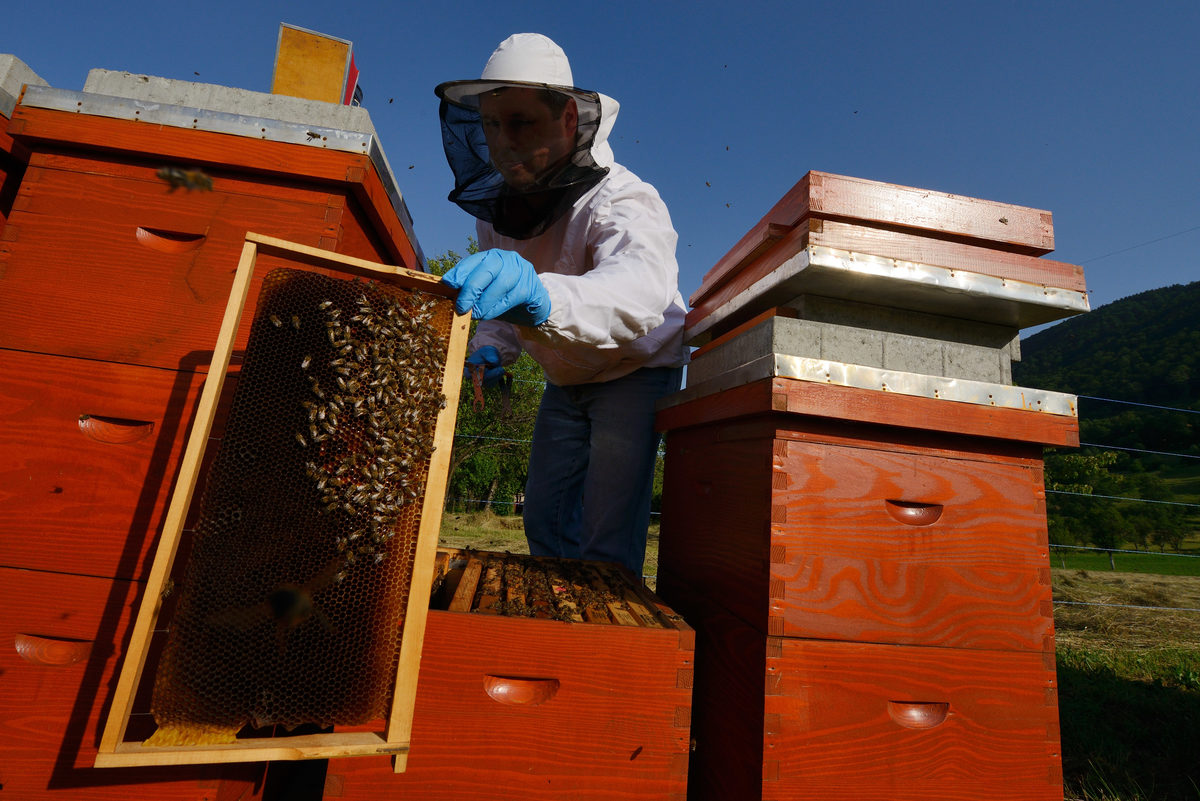As partner in a new EU-funded Interreg project, Rewilding Europe will provide expertise and experience in building nature-based economies. This will lead to the creation of more enabling policy environments for four European regions.

Enabling economies
Over the period 2015-2030 around 11% (more than 20 million hectares) of agricultural land in the EU is estimated to be at high risk of abandonment. Against this backdrop, it is becoming increasingly clear that wild nature and attractive landscapes are assets that can provide innovative solutions to the economic problems facing many European areas. Nearly a fifth of European jobs are directly or indirectly linked to natural resources, and this number is increasing.
Demonstrating that the restoration of wildlife, landscapes and natural processes can generate new economic opportunities is one of Rewilding Europe’s core objectives. Across all of our operational areas we are building a “business case for the wild“, providing financial assistance and expertise to local, nature-based entrepreneurs. By creating new jobs and revenue streams – ranging from bison rangers in Romania right through to sustainable forestry in Portugal – rewilding is thereby helping to revitalise areas of Europe that are frequently characterised by economic stagnation, depopulation and land abandonment.
Action plans
Drawing on our expertise and experience, Rewilding Europe has assumed an advisory role as partner in a new European Union-funded Interreg Europe “Wildlife Economy” project. Kicking off on August 1, 2019 and running through to July 2021, this will see a total of eight partners develop action plans for four European regions. Examples of best practice will be shared, showcasing the development of nature-based economies as an innovative, viable and attractive strategy that can benefit both people and wild nature.
“This project is largely based on collective learning and knowledge exchange,” says Timon Rutten, Rewilding Europe’s Head of Enterprise. “The overall aim is to help the four European regions involved develop policies which can deliver long-term economic growth based on their natural assets.”
Collective expertise
The Wildlife Economy project is made possible thanks to the financial support of the European Regional Development Fund, with a total budget of 1.23 million euros distributed among the following eight partners:
- Province of Limburg (the Netherlands, lead partner)
- Rewilding Europe (the Netherlands)
- Rewilding Sweden (Sweden)
- Regional Landscape Kempen and Maasland (Belgium)
- Norrbotten County Administrative Board (Sweden)
- Environmental Action Germany (Germany)
- Municipal Community Europaregion Pomerania (Germany)
- Alava Provincial Council (Spain)
Each partner is already a leader in nature-based economics, with relevant expertise in finance, tourism and ecology.
Developing action plans
Rewilding Europe is currently in the process of engaging a Wildlife Economy Advisor. The successful recruit will support the four regional teams with development of their action plans and with the sharing of skills and knowledge.
“Dynamic and contemporary wildlife and nature-based businesses can benefit local societies that are more closely tied to natural environments,” says Timon Rutten. “We now need to make sure the right policies and access to finance are in place across Europe to allow more and more of such businesses to start up and grow.”
Want to know more?
- Learn more about Rewilding Europe’s approach to building nature-based economies
- Read more about how rewilding is helping real life European businesses

